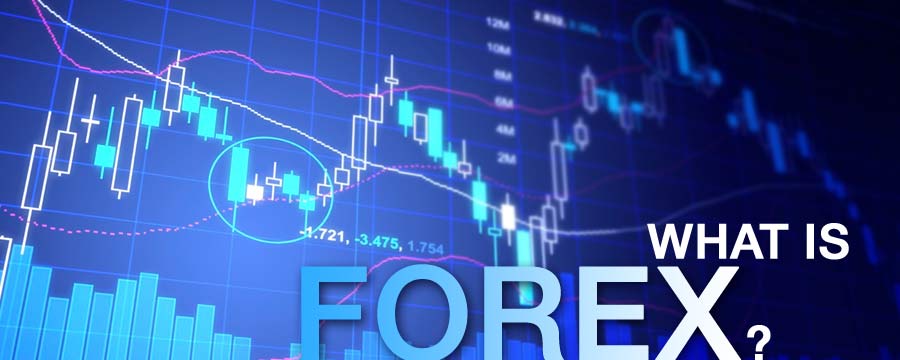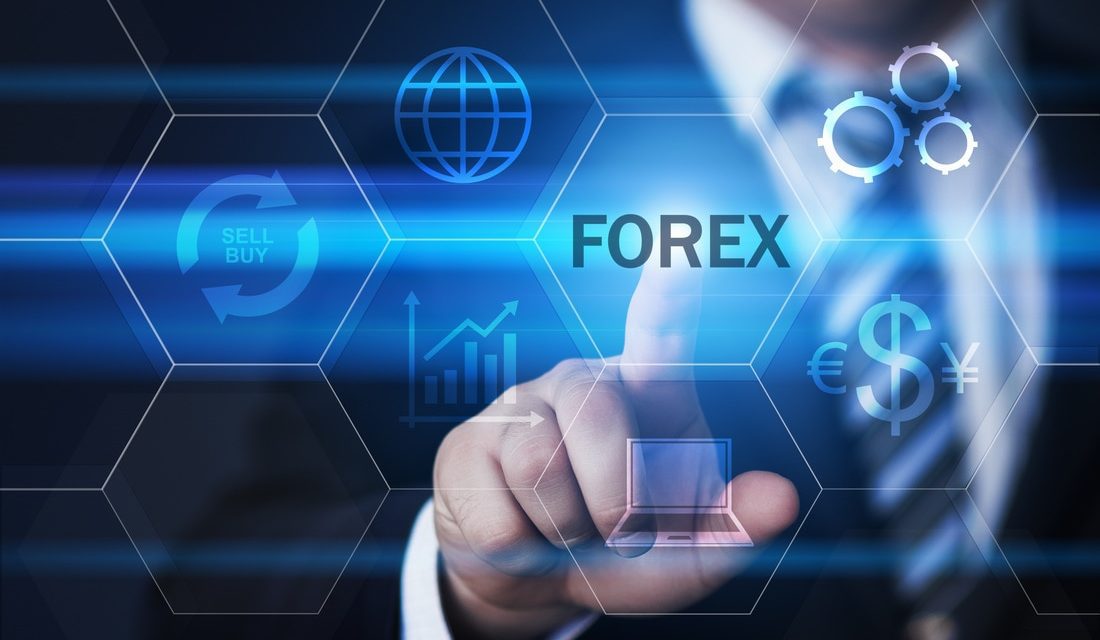What is Forex?
Forex is short for foreign exchange – the transaction of changing one currency into another currency. This process can be performed for a variety of reasons including commercial, tourism and to enable international trade.
The foreign exchange (also known as forex or FX) market refers to the global marketplace where banks, institutions and investors trade and speculate on national currencies.
What is the forex market?
The forex market is by far the largest and most liquid financial market in the world, with an estimated average global daily turnover of more than US$6.5 trillion — which has risen from $5 trillion just a few years ago.
The forex market is open to buy and sell currencies 24 hours a day, five days a week and is used by banks, businesses, investment firms, hedge funds and retail traders.
One critical feature of the forex market is that there is no central marketplace or exchange in a central location, as all trading is done electronically via computer networks. This is known as an over-the-counter (OTC) market.
What is forex trading?
Forex trading is the process of speculating on currency prices to potentially make a profit. Currencies are traded in pairs, so by exchanging one currency for another, a trader is speculating on whether one currency will rise or fall in value against the other.
The value of a currency pair is influenced by trade flows, economic, political and geopolitical events which affect the supply and demand of forex. This creates daily volatility that may offer a forex trader new opportunities.
KEY TAKEAWAYS
- The foreign exchange (also known as FX or forex) market is a global marketplace for exchanging national currencies.
- Because of the worldwide reach of trade, commerce, and finance, forex markets tend to be the largest and most liquid asset markets in the world.
- Currencies trade against each other as exchange rate pairs. For example, EUR/USD is a currency pair for trading euro against the US dollar.
- Forex markets exist as spot (cash) markets as well as derivatives markets offering forwards, futures, options, and currency swaps.
- Market participants use forex to hedge against international currency and interest rate risk, to speculate on geopolitical events, and to diversify portfolios, among several other reasons.
A Brief History of Forex
In its most basic sense, the forex market has been around for centuries. People have always exchanged or bartered goods and currencies to purchase goods and services. However, the forex market, as we understand it today, is a relatively modern invention.
After the accord at Bretton Woods in 1971, more currencies were allowed to float freely against one another. The values of individual currencies vary based on demand and circulation and they are monitored by foreign exchange trading services.
Commercial and investment banks conduct most of the trading in the forex markets on behalf of their clients, but there are also speculative opportunities for trading one currency against another for professional and individual investors.
There are two distinct features to currencies as an asset class:
You can earn the interest rate differential between two currencies.
You can profit from changes in the exchange rate.
An investor can profit from the difference between two interest rates in two different economies by buying the currency with the higher interest rate and shorting the currency with the lower interest rate. Prior to the 2008 financial crisis, it was very common to short the Japanese yen (JPY) and buy British pounds (GBP) because the interest rate differential was very large. This strategy is sometimes referred to as a “carry trade.”
Why trade forex?
Forex is the most traded market in the world and when you understand the benefits of the market, it is easy to understand why.
24 Hour trading, 5 days a week
Unlike other markets, forex trading doesn’t have to stop when the sun goes down. Since forex is traded all over the world, trading markets are open 24 hours a day, 5 days a week, so you can trade when it is convenient for you
No commissions or hidden costs
The costs of trading at FOREX.com are included in the spread—there are no hidden fees or commissions, so you can be confident knowing how much your trade is costing you.
Trading opportunities in bull and bear markets
The forex market offers traders the unique advantage of trading opportunities in both rising and falling markets. And unlike other markets, there are no restrictions or additional costs for short selling.
Trade more with less
Forex is traded with a degree of leverage, allowing you to take a position in the market with a fraction of the capital you would usually need. As much as leverage may increase your gains, it can also increase your losses so it’s important that you understand the risks of trading on margin.
Unmatched liquidity
With daily turnover reaching $5.1 trillion,* forex is the most liquid market in the world. This liquidity often results in more actionable prices and unlike other financial markets, traders can respond almost immediately to currency fluctuations, whenever they occur – 24 hours a day, 5 days a week.
Wide range of markets
Forex trading allows you to easily gain exposure to markets around the world. While most trading is done in the world’s major currencies, you also have access to emerging markets such as Mexican Peso (MXN) and Polish Zloty (PLN).
References:
Forex Trading: A Beginner’s Guide By James Chen, Feb 19, 2021
Why Trade Forex by GAIN Capital Group LLC, Apr 2016







